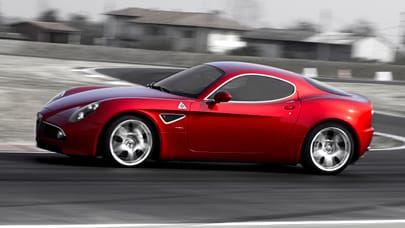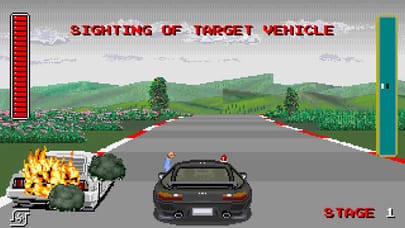
Top Gear’s coolest racing cars: Peugeot 205 T16
Featherweight, 424bhp, title-winning 205 is one of our faves. Jason Barlow explains why


It couldn’t last. But while world rallying’s Group B was in play, the axis of global motorsport shifted firmly away from Formula One and onto the snow, gravel and desert stages that forced the drivers to improvise like crazy. 1982 until 1986 was the golden era, and a time when we all seriously considered learning Finnish.
Advertisement - Page continues below
Relatability is important to hook a big audience in sport, and this was another factor in Group B’s impact. Rally cars often use innocuous road cars as their platform, but this lot made Dr Jekyll’s metamorphosis into Mr Hyde look like provincial panto. This was never clearer than with Peugeot’s huge-selling 1980s 205 supermini, which joined the dots between the GTI road car and T16 rally warrior to spectacular effect. Win on Sunday, sell on Monday? Peugeot couldn’t make ’em fast enough.

The man behind the 205 was Jean Boillot, who decided that entering the WRC would capitalise on the company’s reputation for robustness (you can see 504s at work in Africa to this day). Peugeot Talbot Sport was assembled under the leadership of former rally co-driver Jean Todt (whatever happened to him?), while engineering the 205’s rally incarnation was entrusted to Jean-Claude Vaucard and Bernard Perron, who hired former Alpine man André de Cortanze to oversee the chassis and ex-Renault F1 guy Pierre Boudy to do the engine, having been part of the French giant’s pioneering turbocharging work. The development driver was Frenchman Jean-Pierre Nicolas.
Advertisement - Page continues below
Audi’s Quattro and Lancia’s wonderful 037 had by now redefined world rallying, so the only way to go was mid-engined or four-wheel drive. Todt and his team did both with the humble front-drive 205. A 305 Rallye prototype was used to evaluate the basics, and various engine options were toyed with, including using the joint Peugeot/Renault/Volvo V6 (an engine that was used in the long-forgotten 604, 30 and 760 luxury saloons, as well as the DeLorean).

They settled on a 1.8-litre, 16V engine whose block was based on the diesel unit from the XU family (it was practically bulletproof) that initially produced 320bhp, harnessed by the gearbox from the Citroen SM but transversely mounted, with a variable front-to-rear torque split for maximum traction. As per the rules, 200 road-going versions of the T16 had to be produced, and though they looked pretty wild, a power output of 197bhp was just enough to disturb the skin on a rice pudding.

The competition version was the real deal, though. Peugeot tested the car at Mortefontaine circuit, in local quarries, and on a few sections of the San Remo rally. The bosses signed it off on March 29 1984, but rather than see out the rest of the season, Todt decided to crack on. Ari Vatanen, with Ulster’s finest Terry Harryman co-driving, debuted the T16 in May’s Tour de Corsica, and the die was cast pretty fast: by the third stage, the Finn was quickest, and outpointing the Audi Quattro. By stage eight, he was leading. A textbook debut was derailed on the first stage of the final morning when the car crashed, and caught fire (its occupants were unhurt, but flaming Group B cars would become a worrying trend). Test driver Jean-Pierre Nicolas finished fourth, though, so it was clear that Peugeot wasn’t messing about.

In fact, Vatanen and Harryman, a formidable partnership (“Terry represented a somewhat civil servant attitude in competition, whereas my mentality was anything but!” Vatanen noted), won three in a row as the season progressed, at the 1000 Lakes in Finland, in San Remo, and in the RAC rally. In 1985, the team took constructor’s and driver’s titles with Timo Salonen winning seven of the 11 rounds, while Juha Kankkunen won in 1986, piloting the ever more powerful Evolution 2 version in an effort to stay ahead of the monstrously powerful Lancia Delta S4 (turbo and supercharged to produce well over 500bhp), Audi Quattro Sport S1, Metro 6R4, and Ford RS200.
Advertisement - Page continues below
That the 205 T16 won the ’86 title, in the face of such intense competition, is overshadowed by the events of that year’s Corsican rally. Henri Toivonen and co-driver Sergio Cresto were killed, along with three spectators, when their Delta S4 plunged off the road and exploded. “[GroupB] got out of hand because the cars were so prone to catch fire. The really bad accidents were because of that,” Ari Vatanen later noted, having had his own brush with mortality during the ’85 Argentinian Rally. The FIA had no option but to ban Group B, and world rallying regrouped. The party, for the time being at least, was over.

Peugeot switched its focus to the Paris-Dakar rally raid, an unfeasibly tough event into the Sahara and beyond. That man Vatanen again proved he had a surfeit of the right stuff, winning the Dakar in the 205 T16 in January 1987. His car, no. 205, suffered serious damage before it had even left the outskirts of Paris, but he somehow battled back from 274th place to win, 13,000km and a fortnight later. In fact, Peugeot won four times back-to-back between 1987 and 1990, racking up 48,125 gruelling kilometres in the process.
What better testimony to one of motorsport’s true greats?
Advertisement - Page continues belowPeugeot 205 T16

Year: 1984-1986 (WRC), 1987-1990 (Rally Raid)
Designed by: Jean-Claude Vaucard and Bernard Perron
Drivers: Ari Vatanen, Timo Salonen, Juha Kankkunen
Engine: mid-mounted 1,775cc, four cylinder, turbocharged, 424bhp
Weight: 907kg
Stand-out moment: winning on its fifth competitive outing
Head back to TopGear.com next Monday for the fourth instalment







